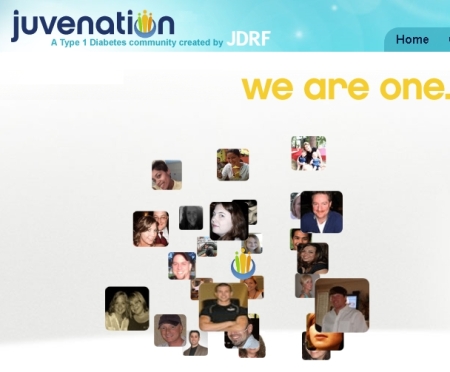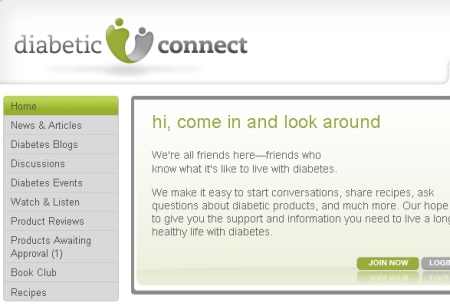The DNA Network |
| Genes predict the ancestry of African-Americans [Genetic Future] Posted: 06 Dec 2008 03:55 PM CST I'm in the middle of a longer post on a recent paper on the effects of genetics on gene expression differences in African-Americans, which has also been well-covered by p-ter at Gene Expression. I wanted to post this section separately to avoid detracting from the issues in that post. This figure will not provide any big surprises for those who have been following developments in human genetics over the last five years - but it still provides a compelling illustration of the power of genetics to predict individual ancestry:
The figure shows the results obtained when the European, Nigerian and East Asian samples from HapMap and 100 African-American samples are clustered using principal component analysis based on data from ~600,000 genetic markers. The European, Nigerian and East Asian samples form strong clusters that are extraordinarily well-separated, demonstrating how easy it is to distinguish between members of these groups with sufficiently large numbers of markers. However, it should be emphasised that adding additional populations from other parts of the world would fill most of the gaps between these clusters, since human geographic variation is largely continuous rather than discrete. The most interesting aspect of the figure is the distribution of the African-Americans, who almost all fall on a remarkably clean line stretching between the European and Nigerian clusters, with some individuals being pulled towards the East Asian cluster (presumably due to admixture from South or East Asia). Using these data each individual's relative level of European and African ancestry can be estimated with high precision. After removing four outliers (the three samples falling furthest from the European-African line, and one individual falling very close to the European cluster) the European admixture levels of individual African-Americans fall between 1 and 62%, with an average of ~21% - a figure consistent with previous studies. Alkes L. Price, Nick Patterson, Dustin C. Hancks, Simon Myers, David Reich, Vivian G. Cheung, Richard S. Spielman (2008). Effects of cis and trans Genetic Ancestry on Gene Expression in African Americans PLoS Genetics, 4 (12) DOI: 10.1371/journal.pgen.1000294 Read the comments on this post... |
| MCB Carnival is coming – need a host! [the skeptical alchemist] Posted: 06 Dec 2008 03:41 PM CST Work is taking over my life lately. Not that it's a bad sign, but it's been keeping me away from my blog a little too much. In the meantime, that time of the month is coming – yes, the Molecular and Cell Biology Carnival is approaching fast, and I am on the lookout for a host! There are two easy ways to become a host: you can contact me at the e-mail on the right hand column of this blog, or you can leave a comment on this post. Make sure you read more about being a host at the MCB website. The carnival will take place on December 14, so make sure you contact me soon! While I am looking for a host, I would also like to invite you to submit your post for the Carnival – you can e-mail me directly, or use this submission form. Last but not least, I cannot leave you without something funny and, of course, Prop 8-related. I am quite sure this clip, found through a friend, is going to make your day. See more Jack Black videos at Funny or Die P.S. The latest Skeptics' Circle edition is up! View blog reactions |
| Online Communities: Diabetes [ScienceRoll] Posted: 06 Dec 2008 01:59 PM CST I’ve already written about a few diabetic community sites such as D-Life and TuDiabetes.Now I would like to share two other sites with you:
If you want to know more about the role of web 2.0 tools in diabetes management, check my interview with Kerri Morrone. Please let me know if you happen to know or use other diabetes communities.  |
| Medicine Meets Virtual Reality 17: Virtual Reality Therapy [ScienceRoll] Posted: 06 Dec 2008 01:44 PM CST I write a blog for the Medicine Meets Virtual Reality 17 conference and publish a series of interviews with famous participants. The third interviewee is Dr. Dennis Wood and the topic is virtual reality graded exposure therapy. Check it out! Further reading:
 |
| All about eye evolution. [Genomicron] Posted: 06 Dec 2008 07:41 AM CST  The most recent issue of Evolution: Education and Outreach is now available free online. This is a special issue devoted to the evolution of eyes. You will recognize many of the names in the table of contents, as several of these authors are also bloggers. Speaking of which, it would be great to have this issue promoted throughout the blogosphere, everyone! Enjoy. The most recent issue of Evolution: Education and Outreach is now available free online. This is a special issue devoted to the evolution of eyes. You will recognize many of the names in the table of contents, as several of these authors are also bloggers. Speaking of which, it would be great to have this issue promoted throughout the blogosphere, everyone! Enjoy.Evolution: Education and Outreach Volume 1 Issue 4 The evolution of eyes Edited by T. Ryan Gregory Editorial 351. Editorial by Gregory Eldredge and Niles Eldredge (PDF) 352-354. Introduction by T. Ryan Gregory (PDF) 355-357. Casting an Eye on Complexity by Niles Eldredge (PDF) Original science / evolution reviews 358-389. The Evolution of Complex Organs by T. Ryan Gregory (PDF) (Blog: Genomicron) 390-402. Opening the "Black Box": The Genetic and Biochemical Basis of Eye Evolution by Todd H. Oakley and M. Sabrina Pankey (PDF) (Blog: Evolutionary Novelties) 403-414. A Genetic Perspective on Eye Evolution: Gene Sharing, Convergence and Parallelism by Joram Piatigorsky (PDF) 415-426. The Origin of the Vertebrate Eye by Trevor D. Lamb, Edward N. Pugh, Jr., and Shaun P. Collin (PDF) 427-438. Early Evolution of the Vertebrate Eye—Fossil Evidence by Gavin C. Young (PDF) 439-447. Charting Evolution's Trajectory: Using Molluscan Eye Diversity to Understand Parallel and Convergent Evolution by Jeanne M. Serb and Douglas J. Eernisse (PDF) 448-462. Evolution of Insect Eyes: Tales of Ancient Heritage, Deconstruction, Reconstruction, Remodeling, and Recycling by Elke Buschbeck and Markus Friedrich (PDF) 463-475. Exceptional Variation on a Common Theme: The Evolution of Crustacean Compound Eyes by Thomas W. Cronin and Megan L. Porter (PDF) 476-486. The Causes and Consequences of Color Vision by Ellen J. Gerl and Molly R. Morris (PDF) 487-492. The Evolution of Extraordinary Eyes: The Cases of Flatfishes and Stalk-eyed Flies by Carl Zimmer (PDF) (Blog: The Loom) 493-497. Suboptimal Optics: Vision Problems as Scars of Evolutionary History by Steven Novella (PDF) (Blog: NeuroLogica) Curriculum articles 498-504. Bringing Homologies Into Focus by Anastasia Thanukos (PDF) (Website: Understanding Evolution) 505-508. Misconceptions About the Evolution of Complexity by Andrew J. Petto and Louise S. Mead (PDF) (Website: NCSE) 509-516. Losing Sight of Regressive Evolution by Monika Espinasa and Luis Espinasa (PDF) Book reviews 548-551. Jay Hosler, An Evolutionary Novelty: Optical Allusions by Todd H. Oakley (PDF) |
| rs4570625 GG makes me a believer [Biomarker-driven mental health 2.0] Posted: 05 Dec 2008 08:57 PM CST
“There is a sucker born every minute”, were the words that looped through my mind on the long train ride home after losing $200 in an unfortunate encounter with a card shark over on Canal Street, many years ago. I recall that when the card shark (actually a kindly old man) suggested to me that I would easily outwit him and $$ win $$, I have to admit that I really, sort of, well, believed him. Hmmm, what a sucker indeed. Come to think of it though, he didn’t even know that I was a GG homozygote at rs4570625 in the tryptophan hydroxylase-2 gene, which according to Furmark and colleagues, is “a significant predictor of clinical placebo response“. Lucky for him I guess. There is actually a lot of mainstream neuroscience research on the placebo response - for good reason - it has a way of complicating & inflating the cost of clinical trials for many neuropsychiatric disorders, but also shows that “overt suggestions” and non-medication-based talk therapies can lead to outcome improvement. In any case, whether you prefer medication or non-medication modalities of treatment, there is much to be gained from understanding the basic biology of the placebo response. A great review on the biology of the placebo response can be found here.  |
| You are subscribed to email updates from The DNA Network To stop receiving these emails, you may unsubscribe now. | Email Delivery powered by FeedBurner |
| Inbox too full? | |
| If you prefer to unsubscribe via postal mail, write to: The DNA Network, c/o FeedBurner, 20 W Kinzie, 9th Floor, Chicago IL USA 60610 | |





![Reblog this post [with Zemanta]](http://img.zemanta.com/reblog_e.png?x-id=b78a834b-ac68-4910-9066-28b1a7f31923)
No comments:
Post a Comment